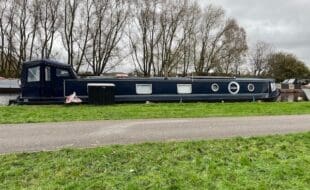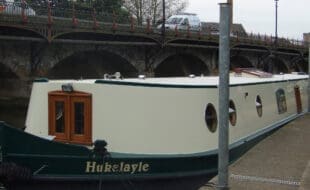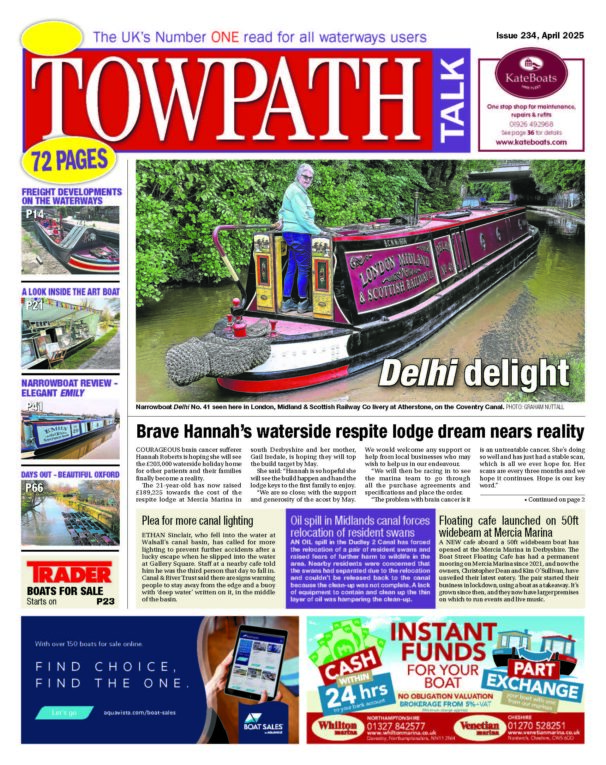IN THE two weeks before this year’s Remembrance Sunday, Braunston village’s war memorial received a welcome makeover – thanks again to generous sponsorship from Braunston Marina.
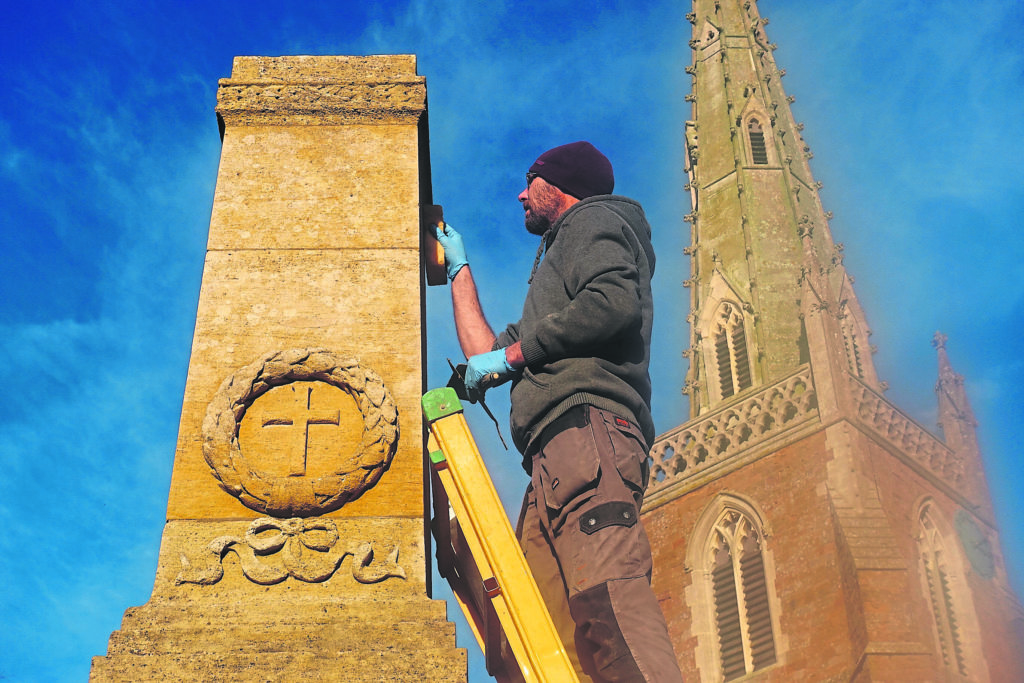
Tim Coghlan, owner of the marina and co-author with Jenny Coy of the booklet Braunston’s Roll of Honour in World War 1, said: “We are proud to play our part in looking after Braunston’s war memorial and in so doing, honouring the men who gave their lives for the freedom we enjoy today.”
A major restoration in the summer of 2014 in the build-up to the centenary of the First World War was also sponsored by Braunston Marina. A special well-attended service was held just before the Braunston Historic Narrowboat Rally in June that year, presided over by the then Rev Sarah Brown, now Dean of Hereford Cathedral.
Accompanying her were actors and canal enthusiasts Prunella Scales and Timothy West, who performed various readings including a recital of the names of the war dead, including their ages and where they fell.
With the location of the memorial very close to the T-junction at the entrance to the village – where it suffers from car engine fumes – and its prominent position facing the full blast of the west wind across the Midland Plain from Napton, the memorial was now beginning to look very grubby and had indeed re-entered the War Memorials Trust’s list of war memorials at risk.
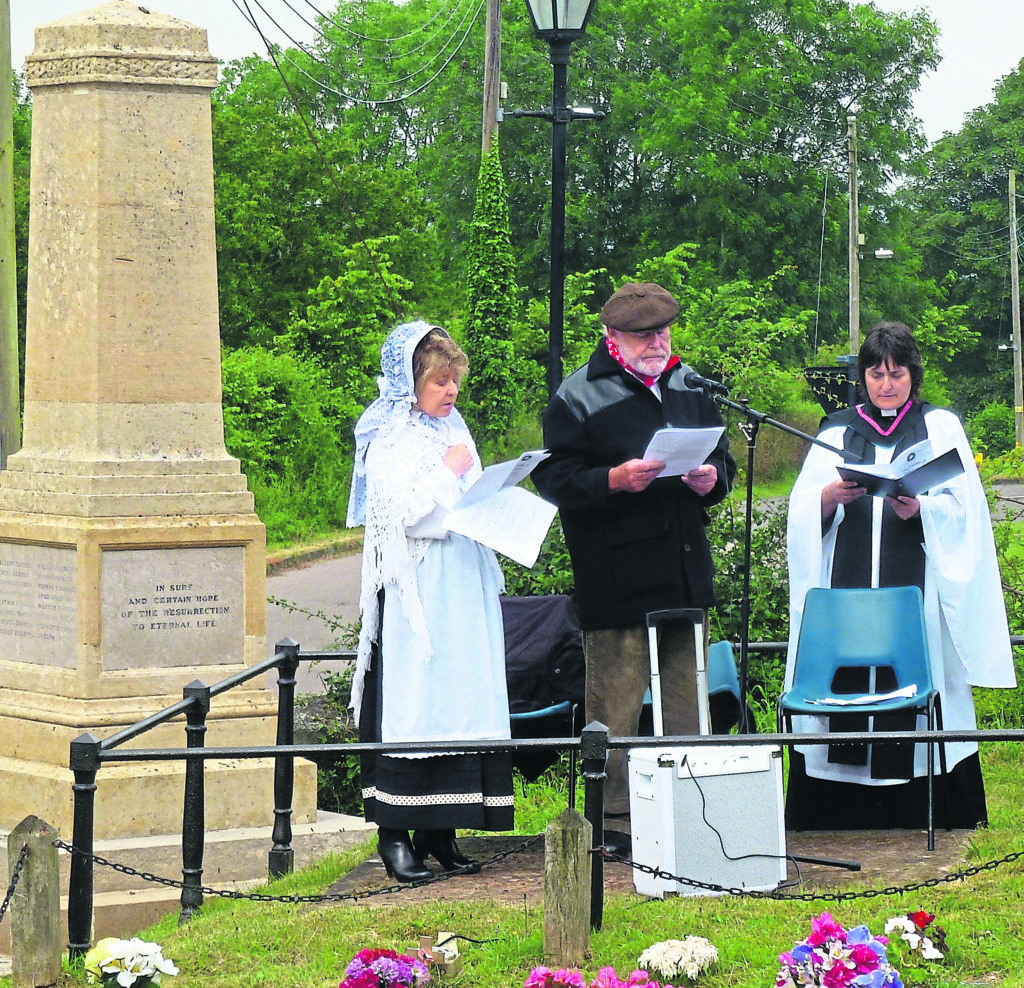
This recent restoration was on a modest scale – largely a clean-up of the stonework by local stonemasonry specialists Boden & Ward of Flore, with judicious repointing from the company’s highly skilled stonemason Steve Hancock. The icing on the cake was the repainting of the lead lettering to the memorial, now largely indecipherable on the south- and west-facing sides.
The modest war memorial was built in about 1922, to commemorate the 31 Braunston villagers who did not return from the First World War – a very high figure and almost twice that of several other local villages of a similar size. And we now don’t know how many serving men returned to Braunston, severely wounded or mentally scarred by having seen the horrors of it.
The First World War affected Great Britain in a way that no war had done since the Norman Conquest of 1066. By the time it had ended in 1918, hardly any community – town, village or rural – had not been involved in it and suffered the loss of some of its men.
In the case of the canal and farming village of Braunston, of the 31 men who died, we know that 19 of them did so as soldiers in France and Belgium. Two more died in Salonika, northern Greece, one in Syria and one in Mesopotamia, in what is today Iraq. Two died serving at sea with the Royal Navy. There were in addition six whom we have been unable to trace in terms of their service record. So these men of Braunston served and died on many fronts.
The men were for the most part simple country folk, who would have previously known nothing of war nor understood the cause for which they were now fighting – farm labourers, a farrier, a domestic groom, a cowman and a postman, among others.
Nine of them were, or could well have been, boatmen, with little if any education, attracted no doubt by the prospect of adventure and the higher wages offered by the King’s Shilling.
#braunston #warmemorial #towpathtalk #canals #canalsandrivers #narrowboat #rivers #waterways #lifeonthecut #boating #boats

